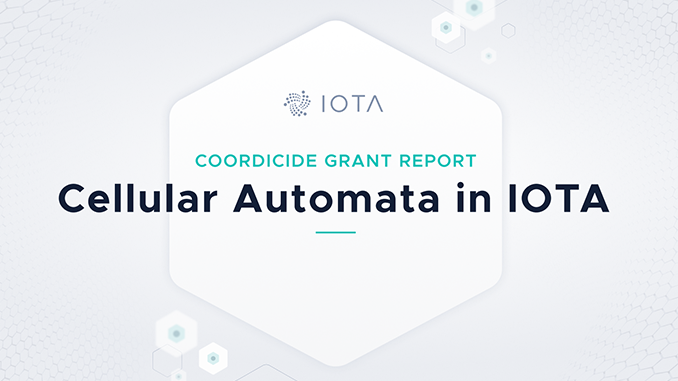
IOTA reports a success for the big goal Coordicide, the abolition of the central coordinator. Research results on automated and decentralized consensus building, which were developed within the framework of a scholarship program of the IOTA Foundation, could help in this process.
IOTA is an exotic among the crypto-currencies. This is because, technologically speaking, the project did not rely on a decentralized block chain at the beginning, but left the final confirmation of commands and transactions to a central coordinator. One reason for this was that IOTA, as the targeted standard in the Internet of Things (IoT), also wants to network less powerful terminal devices with each other. However, this central coordinator has proven to be critical for trust in IOTA’s ecosystem and, from a technological point of view, hinders scalability. Under the project name Coordicide, internal and external developers and researchers are working on a solution. The IOTA Foundation now reports at least a minor success via blog post: So-called cellular automata could help to create a real block chain that meets IOTA’s needs.
Background on IOTA and cellular automata
Cellular automata – in simple terms – artificially reproduce the natural process of cell formation. Cells carry pre-programmed information and pass it on to new cells. In principle, this is not far from blockchains, where new blocks document and carry the results of previously initiated transactions and commands. However, the classic block chains, which are based on the Proof-of-Work (PoS) protocol as in Bitcoin (BTC), require confirmation through computationally intensive cryptographic puzzles in order to form new blocks. This method is therefore out of the question for IOTA.
Instead, IOTA aims at a model in which the consensus of several network participants is sufficient to validate actions. Cellular automata could be suitable for this purpose, according to the IOTA-sponsored US scientists in their report. They also found that by turning set screws on the theoretical model of cellular automata, speed and reliability can be significantly influenced. Now they would like to continue running simulations to test the practicability of their proposal for cordicide.
Conclusion: Coordicide at IOTA is still far from dry
IOTA’s thinking around Coordicide is extremely complicated. After all, the goal is not only to demonstrate a breakthrough in block chain technology, but also to safely replace the existing network. Ethereum (ETH), for example, has also demonstrated how difficult such a project is in reality. There, Ethereum 2.0 is also stuck in development loops, with which PoS is to be replaced by Proof-of-Stake. IOTA communicates for Coordicide, and thus IOTA 2.0, a target date in 2021 that has already been corrected several times backwards. In order to accelerate the process, the IOTA Foundation set up the scholarship program, which now brings cellular automata into play. Whether this approach will really catch on, however, remains to be seen in the latest report. Fundamental doubts about the technological feasibility of Coordicide have already led to public mud battles and are quite justified from experience with other crypto projects.
Meanwhile, some investors are running out of patience with IOTA, as the share price development shows. There the trend for MIOTA has turned negative again, the Altcoin is currently quoted at a modest 0.36 US dollars. Without Coordicide, critical experts believe, MIOTA is threatened with an inglorious disappearance into a self-created bubble. Recently, IOTA skeptics have received additional arguments due to a possible lack of funds from the IOTA Foundation. Let us note: IOTA and unconventional technological approaches emanate a certain fascination. But in the competition of crypto-currencies among themselves, IOTA has considerable problems to prove its sustainability in practice and to keep up with the pace of competing projects.
Best place to buy Bitcoin and IOTA:

Leave a Reply